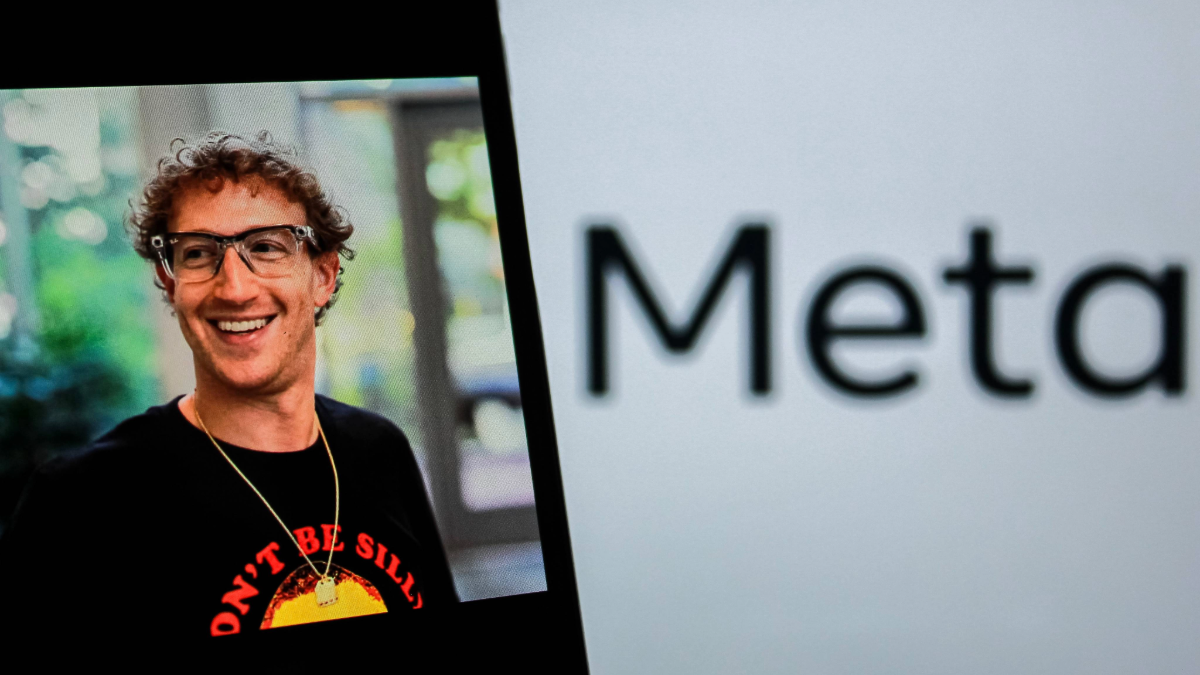What a Dutch Court Ruling Against Meta Signals for Private DSA Enforcement
October 8, 2025
Last week, a Dutch court ordered Meta to give Facebook and Instagram users in the Netherlands the right to set a chronological feed as their default. The ruling, brought by Netherlands-based digital rights group Bits of Freedom, is one of the first in Europe to see key provisions of the Digital Services Act (DSA) successfully applied in civil proceedings.
The ruling comes amid ongoing pressure from the Trump administration to challenge the implementation of European digital regulations. While the European Commission seems to be taking a cautious approach, this case shows that private enforcement, through civil lawsuits, can still make the law tangible for users. The Amsterdam court found that Meta’s automatic algorithmic feeds constitute a prohibited “dark pattern” under Article 25 of the DSA, as they restrict users’ ability to make autonomous choices about how they consume information – a right the court framed as essential for a democratic society.
Partly in view of the Dutch elections on October 29, Meta must therefore modify its platforms within two weeks, under the risk of a maximum penalty of €5,000,000. In a statement to Reuters, Meta said it will appeal the ruling.
To better understand the significance of the ruling and what it could mean for users and platforms alike, Tech Policy Press spoke with Rejo Zenger, Policy and Advocacy Lead at Bits of Freedom.
This interview has been condensed and edited for clarity.
Overall, the court ruling indicates that Meta is violating several provisions of the DSA related to the feeds users see on platforms like Instagram and Facebook. For us, the case is about more than just these technical violations; it’s about who decides what information people are exposed to.
By determining the order and type of content users see, Meta shapes their view of the world. We believe it’s essential that users, not the platform, have the autonomy to decide how their feeds are organized and where their information comes from. We’re not saying Meta’s profiled feed is inherently bad; we’re simply arguing that users should have the choice to opt for a non-profiled, chronological view.
That autonomy is crucial for a healthy public debate, and in this case, especially important in the context of the upcoming Dutch elections. Legally, this might seem like a narrow issue of DSA compliance, but in practice, it’s about something much bigger – user autonomy and the right to control one’s own information environment.
How did you decide to bring this to the court?
The DSA has a number of ways of being enforced. One is via the DSC and/or the European Commission. Another is through out-of-court dispute settlement bodies, which are non-binding and have very low barriers, making them easily accessible to the average user. Thirdly, there’s the opportunity to take a platform to court.
In some cases, such as when one piece of content has been taken offline wrongly or potentially wrongly, it’s easier for the user to go through an ODS body. But in cases where a binding decision is needed quickly, the court may be a better option. If timing is less urgent and a decision with implications for all of Europe is desired, filing a complaint with the European Commission is a better approach.
For example, in this case, since we initiated summary proceedings in court, we were able to obtain a decision within one and a half weeks. However, it only has legal effect in the Netherlands. Going through the DSC or the European Commission may take months, but the decision would apply across Europe.
Bits of Freedom filed a complaint with the Irish Digital Services Coordinator (DSC), which is responsible for taking up cases against Very Large Online Platforms (VLOPs). Part of it was forwarded to the European Commission, since they enforce certain aspects of the DSA. Both processes can take several months.
And after we filed the complaint, the Dutch government fell, and we have new elections coming up at the end of October. Then we said, “Okay, well, we can’t wait until the European Commission takes a decision on our complaint. We need to have a decision now.” And this is why we took this case to the court in Amsterdam.
Meta has done everything it can to prevent users from using alternative feeds, and the court agrees. While it’s technically possible to switch between feeds, it’s not really accessible or user-friendly. For example, on Instagram for Android, you have to navigate awkwardly through menus, and in some cases, you even have to switch back to the feed based on profiling to access your direct messages.
The court explicitly noted that these practices constitute “dark patterns.” Even if users can switch feeds, they cannot set a preferred feed that persists, and the platform continually nudges users back to the profile feed. In short, Meta is not providing users the autonomy required under the law.
The DSA is designed to regulate platforms and shift some power from the big tech companies to users. Since the European Commission and the Dutch court are interpreting the same legislation, it would be surprising if the Commission came to a fundamentally different conclusion than the Dutch court.
I think the DSA is still very new, so we’re still seeing how enforcement will play out. If the Digital Services Coordinators don’t do what they’re supposed to, civil society can step in to make sure the law is enforced. The same goes for the European Commission, which, as you know, is under pressure from the US and may not take up certain cases. In those situations, civil society can either push the Commission to act or take a platform to court to make sure all parts of the DSA are properly enforced.
Also, taking a platform to court is always very costly. Even if you were fully reimbursed for legal fees, there’s always the risk of losing, which could mean paying both your own lawyers and the platform’s. This creates a significant barrier for civil society. In our case, we had to quickly secure substantial funds to pay our lawyers for the summary proceedings, which were conducted on a very short timeline. There’s a huge imbalance in resources: Meta has almost unlimited funds, while civil society groups must scrape together every euro.
There is also little formal support for civil society under the DSA. Coupled with the shrinking funding space in Europe and the US, this makes it increasingly difficult for organizations like ours to hold powerful platforms accountable.
Do you expect more advocacy groups across Europe to bring similar cases to court?
I think the shrinking space for civil society is worrisome. As I mentioned, the European Commission is under pressure from the Trump administration and the US government to slow down enforcement of regulations like the DSA, DMA, and GDPR. That makes it even more important for civil society to step in, but it becomes a problem if we have less space to operate.
Regarding other organizations in Europe, our case was filed in the Netherlands, so the judge’s ruling applies only to Meta users in the country. The judgment is relatively limited in scope, but because the DSA is a European regulation, it applies across all EU member states immediately; there’s no need to transpose it into national law. This means civil society groups in other countries could pursue similar cases against Meta, and it would be surprising if judges in other member states reached fundamentally different conclusions.
It’s still early, and we need to see how Meta responds. But if the company respects the Dutch court ruling, I wouldn’t be surprised to see civil society in other member states taking up similar actions using the same arguments.
Two things. First, Meta doesn’t address the actual violation, which is clear under the DSA. In their [press] statements, they focused on procedural or process arguments rather than the content of the case. Bringing up these procedural arguments is a strategy by Meta to avoid discussing the substance of the case. They also didn’t respond substantively when we initially notified them about the violation; they just cited elections and general risk.
Second, while it’s true that the European Commission could handle this, there’s no hierarchy of enforcement. National courts, DSCs, and the Commission all have parallel enforcement powers, and one doesn’t take precedence over the others. Taking this case to a Dutch court doesn’t preclude the Commission from acting, it’s just one available route. Meta is framing this as a procedural problem, trying to make the case seem bigger than it is, but there are multiple ways to enforce the DSA, and we chose one.
Currently, the ruling stands, and they need to implement the required changes to Facebook and Instagram. If Meta appeals, that doesn’t automatically suspend the order. The court has instructed them to implement the changes within two weeks, and that remains binding.
An appeal would simply have another court review the case in a few months; it could come to the same ruling or a different one. Meta could also try to request additional proceedings to delay the implementation, and if a court agrees, the deadline could be postponed. But as it stands, the two-week order is enforceable.
Would you consider the civil proceedings route again?
I think it’s important to stress that taking Meta to court is our last resort. We’ve been engaging with Meta for the past 15 years, and in the beginning, we were very collaborative, having discussions, trying to convince them of our points. We’ve also pursued other avenues, including working with legislators, and at times we’ve even been able to show that Meta provided false information to members of the Dutch parliament.
Going to court is not something we do lightly. We don’t take companies to court easily, and it’s certainly not about money. But in this case, given Meta’s dominance and the impact it has on public debate, we felt it was necessary.
Search
RECENT PRESS RELEASES
Related Post





